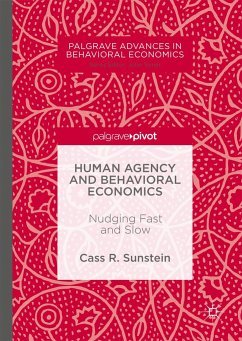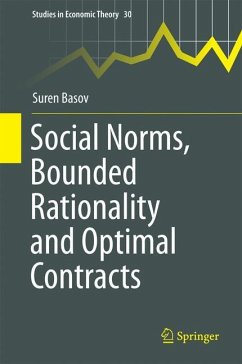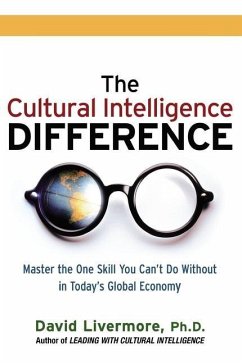
Behavioral Economics and Bioethics
A Journey

PAYBACK Punkte
21 °P sammeln!
This book takes readers on a journey through the wide universe of bioethics, raising the following question: what is the proper attitude towards health, life, and death from the perspective of contemporary behavioral economics? Drawing on fields as diverse as economics, ethics, ecology, biology, and philosophy, this book seeks to uncover the bioethics we accomplish, not the moral principles that we advocate. This book covers life-and-death issues arranged around five themes: selves, persons, populations, species, and "Future Earth". Ultimately, the author illustrates two kinds of justice: stat...
This book takes readers on a journey through the wide universe of bioethics, raising the following question: what is the proper attitude towards health, life, and death from the perspective of contemporary behavioral economics? Drawing on fields as diverse as economics, ethics, ecology, biology, and philosophy, this book seeks to uncover the bioethics we accomplish, not the moral principles that we advocate. This book covers life-and-death issues arranged around five themes: selves, persons, populations, species, and "Future Earth". Ultimately, the author illustrates two kinds of justice: static and dynamic. Static justice prevails whenever parties are free to bargain with each other, while dynamic justice follows from parties' interactions over time. An examination into these types of justice reveals one particularly striking phenomenon: attempts by others to tip the balance of justice have a tendency to backfire. Of primary interest to behavioral economists, this book will alsoappeal to scholars studying bioethics, ecology, medicine, and philosophy, as well as all people dealing with issues of health, dying, and death.












